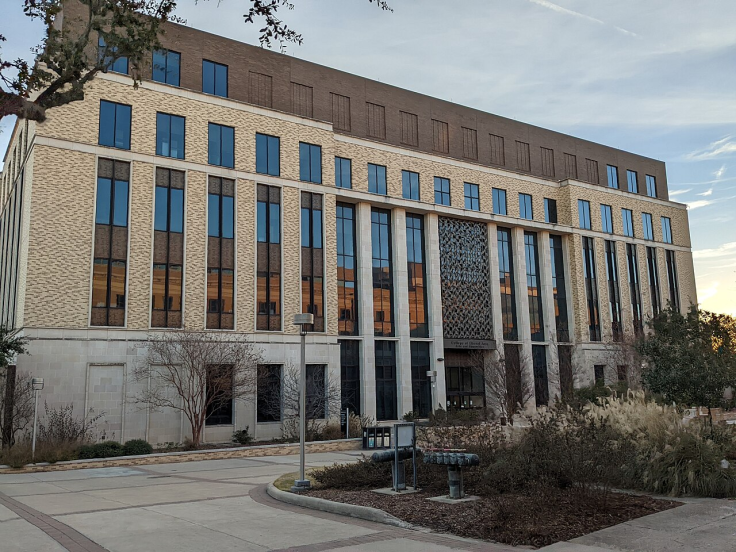Texas Public Colleges Freeze Scholarships to Comply With New Anti-DEI Law; What Does It Imply to Diversity and Inclusion?
ByTexas public colleges are taking significant steps to comply with a new state law prohibiting the spending of state funds on diversity, equity, and inclusion (DEI) initiatives.
This has led to the freezing or amending of 131 scholarships with race-based eligibility requirements, a move that affects many students and academic programs across the state. Notably, Texas A&M University system campuses have seen the suspension of 80 scholarships, many of which were designed to increase diversity in historically white-dominated STEM fields. The repercussions of this law extend beyond scholarships, prompting public higher education institutions to close diversity and LGBTQ+ centers and lay off numerous staff members dedicated to DEI programming.

A Closer Look at the Scholarship Freeze
The freezing and amending of scholarships in Texas have sparked widespread concern and debate. These scholarships were initially established to support underrepresented minorities in gaining access to higher education, especially in fields where they have been historically underrepresented. For instance, many scholarships at Texas A&M University aimed to diversify the STEM fields, which have traditionally seen lower participation rates from minority groups.
The new state law has forced institutions to reconsider the criteria for these scholarships, often removing race-based eligibility requirements. This shift not only undermines the original intent of these scholarships but also jeopardizes the educational opportunities for many students who rely on these funds. The freeze impacts a significant number of students who may now find it challenging to afford their education, particularly in specialized and competitive fields like STEM.
Moreover, the decision to amend or freeze these scholarships without consulting the donors who funded them raises ethical concerns. Many donors contributed with the specific intent of promoting diversity and supporting minority students. The unilateral change in the use of these funds can be seen as a betrayal of their trust and intentions.
The Broader Implications for Diversity and Inclusion
The anti-DEI law in Texas has had a ripple effect across the state's public higher education institutions. Beyond scholarships, the law has led to the closure of diversity and LGBTQ+ centers, which have been vital resources for fostering an inclusive campus environment. These centers provided support, advocacy, and programming that addressed the unique challenges faced by minority and LGBTQ+ students.
The layoffs of staff focused on DEI programming further diminish the support system available to these students. These professionals played crucial roles in promoting diversity, equity, and inclusion within the campus community, offering mentorship, and organizing events that highlighted the importance of a diverse academic environment. The loss of these resources not only affects the students directly but also the broader campus culture, potentially leading to a less inclusive and supportive environment for all students.
The changes in Texas reflect a larger national trend, where DEI initiatives and minority scholarships are increasingly under scrutiny. For example, the University of Missouri system has also worked to eliminate race-based scholarships across its campuses. While not driven by a state law, this decision was influenced by the Supreme Court's ruling on affirmative action, which the Missouri Attorney General argues should apply to financial aid as well as admissions.
The Future of Diversity in Higher Education
The actions taken in Texas and Missouri highlight the growing challenges faced by diversity initiatives in higher education. As states and institutions respond to new laws and judicial decisions, the future of DEI programming and minority scholarships remains uncertain. These developments raise critical questions about the commitment of higher education institutions to fostering diverse and inclusive environments.
It is essential for stakeholders, including policymakers, educators, students, and donors, to engage in dialogue about the value of diversity in higher education. Scholarships and DEI programs play a crucial role in leveling the playing field and providing opportunities to historically marginalized groups. Ensuring that these initiatives continue to receive support, even in the face of legal and political challenges, is vital for the progress and equity in education.
The freezing and amending of scholarships in Texas, prompted by the new anti-DEI law, is a significant setback for diversity and inclusion efforts in the state's higher education system. The broader implications of this law, including the closure of diversity centers and the layoffs of DEI staff, further underscore the challenges faced by minority and LGBTQ+ students. As similar actions unfold in other states like Missouri, the future of DEI initiatives in higher education hangs in the balance, making it imperative for all stakeholders to advocate for and support these essential programs.
© 2025 University Herald, All rights reserved. Do not reproduce without permission.








